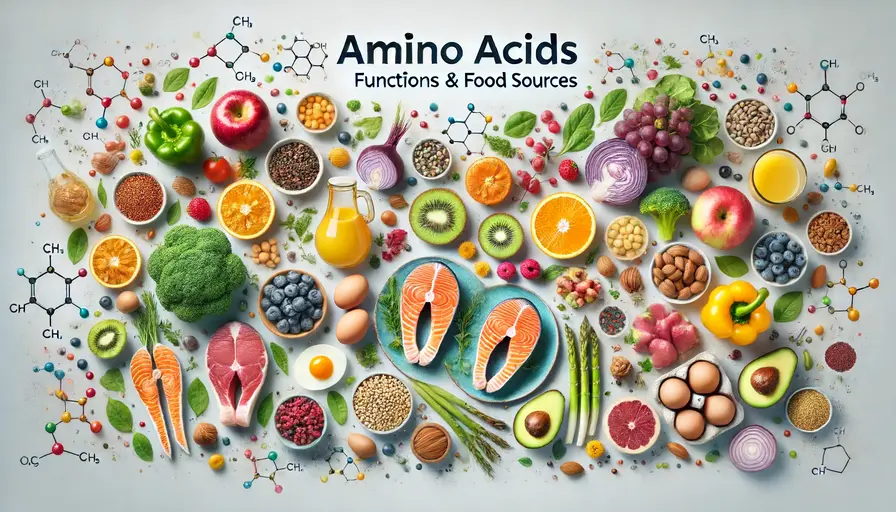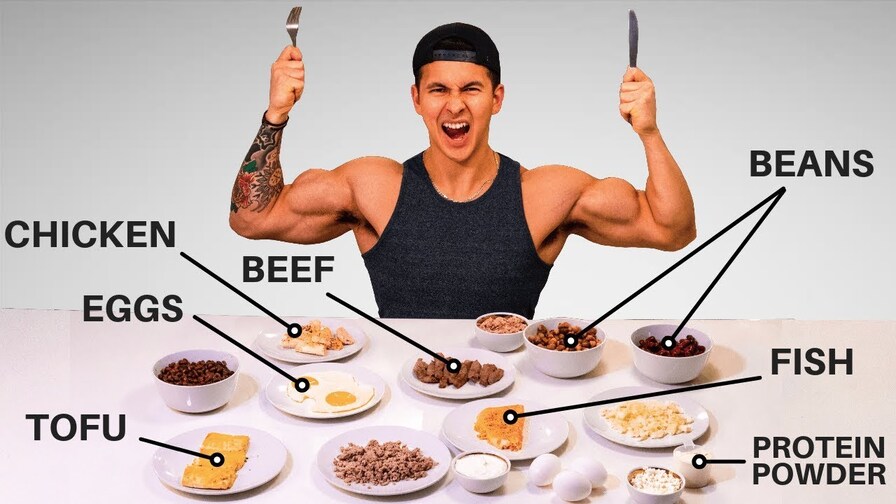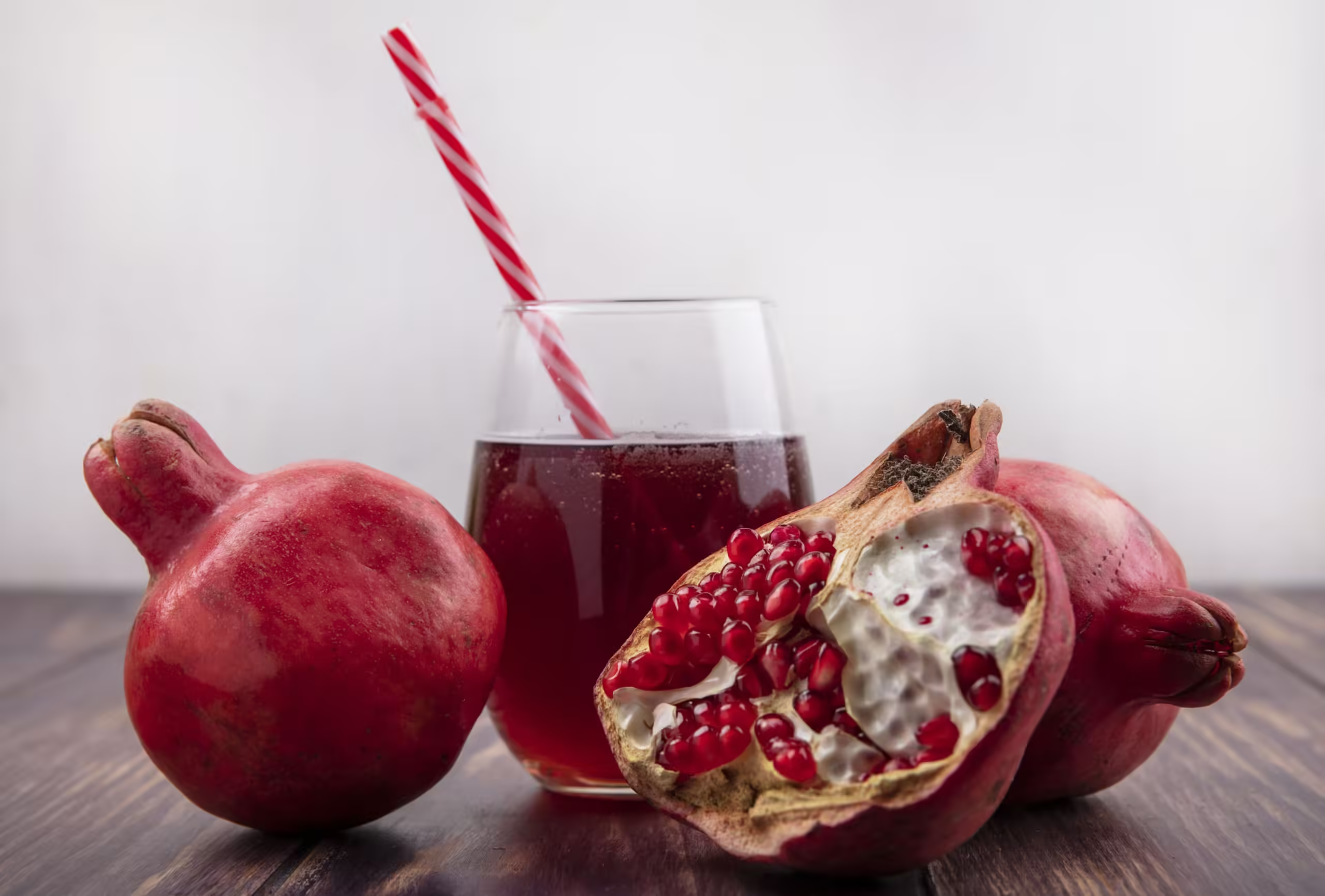The Essential Amino Acid and Its Role in Diet
Amino acids are the building blocks of life, crucial for numerous bodily functions, from protein synthesis to neurotransmitter production. Among these amino acids, Phenylalanine stands out as an essential amino acid, meaning our bodies cannot synthesize it, and we must obtain it through our diet. In this comprehensive exploration, we will delve into the nature of phenylalanine, its roles in the human body, dietary sources, health benefits, potential risks, and its significance in various health conditions.
1. What is Phenylalanine?
Structure and Types
Phenylalanine is an aromatic amino acid with the chemical formula C9H11NO2. It exists in two forms: L-Phenylalanine and D-Phenylalanine. The L-form is found naturally in proteins and is the form that is primarily used by the body. The D-form is synthesized in the laboratory and is sometimes used in supplements for its potential pain-relieving properties.
Essential Amino Acid
As an essential amino acid, phenylalanine cannot be produced by the human body and must be obtained through dietary sources. It plays a critical role in various physiological processes, particularly in the production of proteins and neurotransmitters.
2. Phenylalanine in the Human Body
Role in Protein Synthesis
Phenylalanine is a key player in protein synthesis, forming the backbone of many proteins necessary for the growth, repair, and maintenance of body tissues. Without sufficient phenylalanine, the body cannot produce certain proteins essential for health and well-being.
Conversion to Tyrosine
One of the most important roles of phenylalanine is its conversion into another amino acid, tyrosine. Tyrosine is essential for the synthesis of several important neurotransmitters, including dopamine, norepinephrine, and epinephrine, which are critical for mood regulation, cognitive function, and the body’s stress response.
Precursor to Neurotransmitters
Phenylalanine’s conversion to tyrosine is a precursor step in the production of several neurotransmitters:
- Dopamine: Involved in reward, motivation, and motor control.
- Norepinephrine: Plays a role in alertness and the fight-or-flight response.
- Epinephrine: Also known as adrenaline, it prepares the body for intense physical activity.
These neurotransmitters are crucial for mental health, focus, and stress management.
3. Dietary Sources of Phenylalanine
Animal-Based Sources
Phenylalanine is abundant in many animal-based foods, making it easily accessible for those who consume meat and dairy products. Some of the richest sources include:
- Meat: Beef, chicken, pork, and lamb are high in phenylalanine.
- Fish: Salmon, tuna, and cod are excellent sources.
- Eggs: A versatile source of phenylalanine.
- Dairy Products: Milk, cheese, and yogurt are rich in this amino acid.
Plant-Based Sources
For those following a plant-based diet, there are plenty of options to ensure adequate intake of phenylalanine:
- Legumes: Soybeans, lentils, and chickpeas are particularly high in phenylalanine.
- Nuts and Seeds: Almonds, sunflower seeds, and sesame seeds offer substantial amounts.
- Whole Grains: Quinoa, oats, and brown rice are good sources.
- Vegetables: Spinach, potatoes, and avocados contain moderate amounts.
Phenylalanine in Processed Foods
Phenylalanine is also found in some processed foods, particularly those containing the artificial sweetener aspartame. Aspartame is commonly used in diet sodas, sugar-free gum, and other low-calorie products. When aspartame is metabolized, it breaks down into phenylalanine among other components.
4. Health Benefits of Phenylalanine
Cognitive Function and Mood Regulation
Phenylalanine’s role in the production of neurotransmitters is crucial for maintaining cognitive function and regulating mood. Adequate levels of phenylalanine can help:
- Enhance focus and alertness: By increasing dopamine levels.
- Improve mood: By supporting the production of norepinephrine and serotonin.
- Alleviate depression: Some studies suggest that phenylalanine supplementation may help treat symptoms of depression, particularly when combined with other treatments.
Pain Management
D-Phenylalanine, the synthetic form of the amino acid, has been explored for its potential in pain management. It is thought to inhibit the enzymes that break down endorphins, the body’s natural painkillers, thereby prolonging their effect.
Skin Health
Phenylalanine has been studied for its potential benefits in treating vitiligo, a condition where the skin loses its pigment. Some research suggests that combining phenylalanine with UV light therapy may help repigment the skin in people with vitiligo.
Weight Management
Phenylalanine can contribute to weight management by promoting the release of cholecystokinin (CCK), a hormone that signals satiety to the brain, helping reduce appetite and prevent overeating.
5. Phenylalanine and Health Conditions
Phenylketonuria (PKU)
Phenylketonuria (PKU) is a rare genetic disorder in which the body cannot properly metabolize phenylalanine due to a deficiency in the enzyme phenylalanine hydroxylase. Without proper management, phenylalanine can accumulate in the body, leading to brain damage and other serious health problems. Individuals with PKU must follow a strict low-phenylalanine diet to prevent these complications.
Depression and Anxiety
Phenylalanine’s role in neurotransmitter production makes it relevant in the context of mental health. Some studies have investigated its potential to alleviate symptoms of depression and anxiety, although more research is needed to fully understand its effectiveness and safety in these applications.
Vitiligo
As mentioned earlier, phenylalanine has shown promise in the treatment of vitiligo. While it is not a cure, it may help slow the progression of the disease and promote repigmentation in some individuals.
6. Potential Risks and Side Effects
Overconsumption Concerns
While phenylalanine is essential for health, excessive intake can lead to potential risks, especially for individuals with certain medical conditions. High levels of phenylalanine may cause:
- Neurological issues: Such as headaches, anxiety, and mood swings.
- Sleep disturbances: Due to its impact on neurotransmitter balance.
Interactions with Medications
Phenylalanine may interact with certain medications, particularly those used to treat depression, such as monoamine oxidase inhibitors (MAOIs). It can also affect individuals taking levodopa for Parkinson’s disease, potentially worsening side effects.
Special Considerations for Individuals with PKU
For individuals with PKU, even small amounts of phenylalanine can be harmful. They must avoid high-phenylalanine foods and products containing aspartame, which is often overlooked as a hidden source of phenylalanine.
7. Recommended Daily Intake
Guidelines for Different Age Groups
The recommended daily intake of phenylalanine varies depending on age, gender, and overall health:
- Infants (0-6 months): 59 mg/kg body weight.
- Children (1-3 years): 25 mg/kg body weight.
- Adults: 14 mg/kg body weight.
These values are general guidelines and may vary based on individual needs and medical advice.
Phenylalanine in Special Diets
Individuals following specific dietary regimens, such as a vegan or vegetarian diet, need to ensure they consume adequate amounts of phenylalanine from plant-based sources. In contrast, those with PKU must strictly limit their intake, often requiring specialized low-phenylalanine formulas and foods.
8. Balancing Phenylalanine Intake for Optimal Health
Understanding the role of phenylalanine in the body is crucial for maintaining overall health and well-being. While it is essential for protein synthesis, neurotransmitter production, and various other bodily functions, it is equally important to manage its intake, particularly for individuals with specific health conditions like PKU (Phenylketonuria).
Importance of Balanced Intake
For most people, a balanced diet that includes a variety of protein sources will typically provide sufficient phenylalanine to meet the body’s needs. This includes:
- Diverse Protein Sources: Consuming a mix of animal and plant-based proteins helps ensure adequate phenylalanine intake without excessive consumption. Protein sources such as lean meats, dairy products, legumes, and nuts provide essential amino acids, including phenylalanine, in a controlled manner.
- Moderation: While phenylalanine is important, moderation is key. Excessive intake can lead to complications, especially in individuals with metabolic disorders like PKU. A balanced approach allows for the benefits of phenylalanine while minimizing the risk of adverse effects.
9. The Importance of Phenylalanine in Nutrition
Role in Hormonal Regulation
Phenylalanine is not only crucial for neurotransmitter synthesis but also plays a significant role in hormonal regulation. It is a precursor to tyrosine, which in turn is vital for the production of hormones such as thyroxine (T4) and triiodothyronine (T3), which are essential for metabolism, growth, and development. These thyroid hormones help regulate:
- Metabolic rate: Influencing how the body converts food into energy.
- Growth and development: Affecting physical and cognitive development, particularly in children.
- Temperature regulation: Helping maintain normal body temperature.
Impact on Cognitive Function
Adequate levels of phenylalanine are necessary for maintaining optimal cognitive function. The neurotransmitters derived from phenylalanine—dopamine, norepinephrine, and epinephrine—are essential for various aspects of mental performance:
- Memory and Learning: Dopamine, which is synthesized from phenylalanine, plays a crucial role in memory formation and learning. Low dopamine levels can impair cognitive functions and learning abilities.
- Attention and Focus: Norepinephrine and epinephrine are involved in attention and focus. Adequate levels of these neurotransmitters support concentration and mental alertness.
- Mood Stability: Balanced levels of neurotransmitters contribute to emotional stability and can help manage stress, anxiety, and depression.
10. Phenylalanine in Special Populations
Pregnant and Breastfeeding Women
For pregnant and breastfeeding women, phenylalanine plays an essential role in the development of the fetus and infant. It contributes to:
- Fetal Development: Phenylalanine is vital for the synthesis of proteins and neurotransmitters needed for the proper development of the fetus’s brain and nervous system.
- Breast Milk Production: Adequate phenylalanine levels ensure that breast milk contains the necessary nutrients for the infant’s growth and development.
Pregnant and breastfeeding women should monitor their phenylalanine intake to ensure they meet their nutritional needs without overconsuming. Consulting with a healthcare provider can help in maintaining a balanced diet during these critical periods.
Athletes and Active Individuals
For athletes and individuals with high physical activity levels, phenylalanine can support:
- Muscle Recovery: As an essential component of protein synthesis, phenylalanine aids in muscle repair and recovery post-exercise.
- Energy Levels: By contributing to neurotransmitter production, phenylalanine helps maintain energy levels and focus during intense physical activities.
- Performance Enhancement: Adequate levels of phenylalanine can help optimize cognitive function and physical performance.
Athletes should ensure they obtain enough phenylalanine through their diet or supplements to support their training and recovery needs.
11. Phenylalanine and Mental Health
Role in Treating Depression
Research into the role of phenylalanine in treating depression has shown promising results. Studies suggest that:
- Supplementation Benefits: Phenylalanine supplements may help alleviate symptoms of depression by boosting levels of neurotransmitters such as dopamine and norepinephrine.
- Combined Therapy: Phenylalanine supplementation may be more effective when combined with other treatments, such as cognitive-behavioral therapy or antidepressant medications.
Managing Stress and Anxiety
Phenylalanine’s role in neurotransmitter production makes it relevant in managing stress and anxiety. Adequate levels of neurotransmitters such as norepinephrine and serotonin can help:
- Regulate Stress Response: By enhancing the body’s ability to manage stress and emotional responses.
- Reduce Anxiety Symptoms: Through improved mood and emotional stability.
12. Phenylalanine in Food and Supplements
Choosing the Right Foods
Incorporating phenylalanine-rich foods into your diet is an effective way to ensure adequate intake. Focus on:
- Balanced Meals: Include a variety of protein sources, both animal and plant-based, to meet your phenylalanine needs.
- Whole Foods: Opt for whole, minimally processed foods to maximize nutrient intake.
Supplements and Dosage
For those who require additional phenylalanine beyond dietary sources, supplements are available. Consider:
- Types of Supplements: Phenylalanine supplements are available in various forms, including tablets, capsules, and powders.
- Dosage Recommendations: Follow recommended dosages on supplement labels or as advised by a healthcare professional.
13. Monitoring Phenylalanine Levels
Regular Testing for Individuals with PKU
For individuals with PKU, regular monitoring of phenylalanine levels is crucial. This involves:
- Blood Tests: Frequent blood tests to measure phenylalanine levels and adjust dietary intake as needed.
- Dietary Adjustments: Making necessary changes to the diet based on test results to maintain safe phenylalanine levels.
Self-Monitoring for the General Population
While most people do not need to monitor phenylalanine levels, those with specific health concerns or dietary restrictions should:
- Track Intake: Keep a food diary to ensure adequate but not excessive intake.
- Consult Healthcare Providers: Seek professional advice if experiencing symptoms related to neurotransmitter imbalances.
14. The Future of Phenylalanine Research
Ongoing Studies and Developments
Research into phenylalanine continues to explore its potential benefits and applications. Areas of interest include:
- Neuropsychiatric Disorders: Investigating phenylalanine’s role in managing conditions such as bipolar disorder and schizophrenia.
- New Therapeutic Uses: Exploring potential new uses for phenylalanine in treating various health conditions.
Innovations in Treatment and Management
Advancements in research may lead to new treatments and management strategies for conditions related to phenylalanine. Innovations may include:
- Improved Supplements: Development of more effective and targeted phenylalanine supplements.
- Personalized Nutrition: Tailoring dietary recommendations based on individual genetic and health profiles.
Conclusion
Phenylalanine is a vital amino acid with far-reaching effects on our health. From its crucial role in protein synthesis and neurotransmitter production to its potential benefits in managing mental health conditions, phenylalanine is a cornerstone of nutrition and wellness. By understanding its functions, dietary sources, and implications for health, individuals can make informed choices to support their overall well-being. Whether you are managing a health condition, pursuing optimal performance, or simply aiming for balanced nutrition, phenylalanine plays an essential role in achieving and maintaining your health goals.
Highlights
- Phenylalanine is crucial for neurotransmitter production, protein synthesis, and hormonal regulation.
- Found in both animal-based and plant-based foods.
- Plays a role in mental health, pain management, and skin health.
- Essential for individuals with Phenylketonuria (PKU) to monitor intake.
- Promising research into its role in treating depression and managing stress.
Understanding the diverse roles of phenylalanine and its impact on health helps in making balanced dietary choices and addressing specific health needs.





Wow, this post on amino acids is super informative! I had no idea how essential they are for so many bodily functions, from muscle repair to supporting mental health. Definitely learned something new today. Thanks for breaking it down so clearly
We have so many other good posts as well on the topic of nutrition , do visit them as well